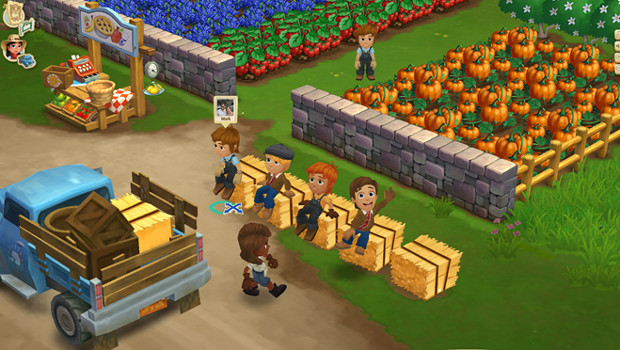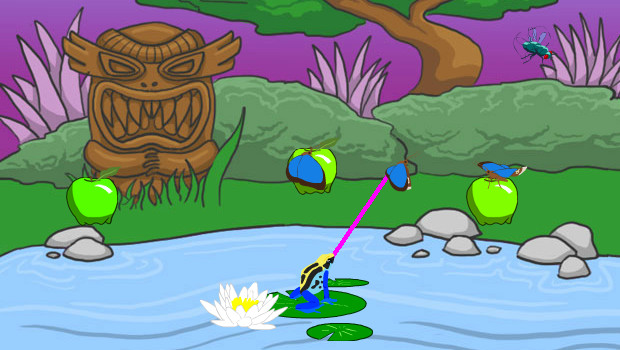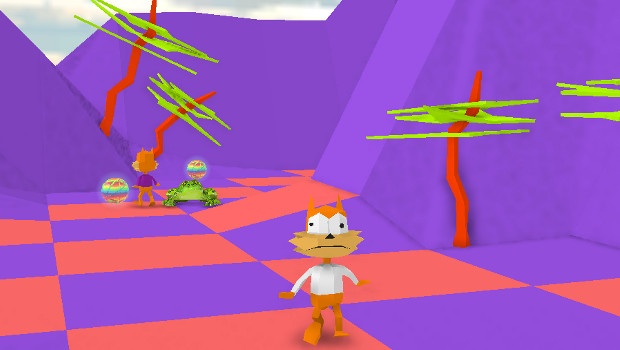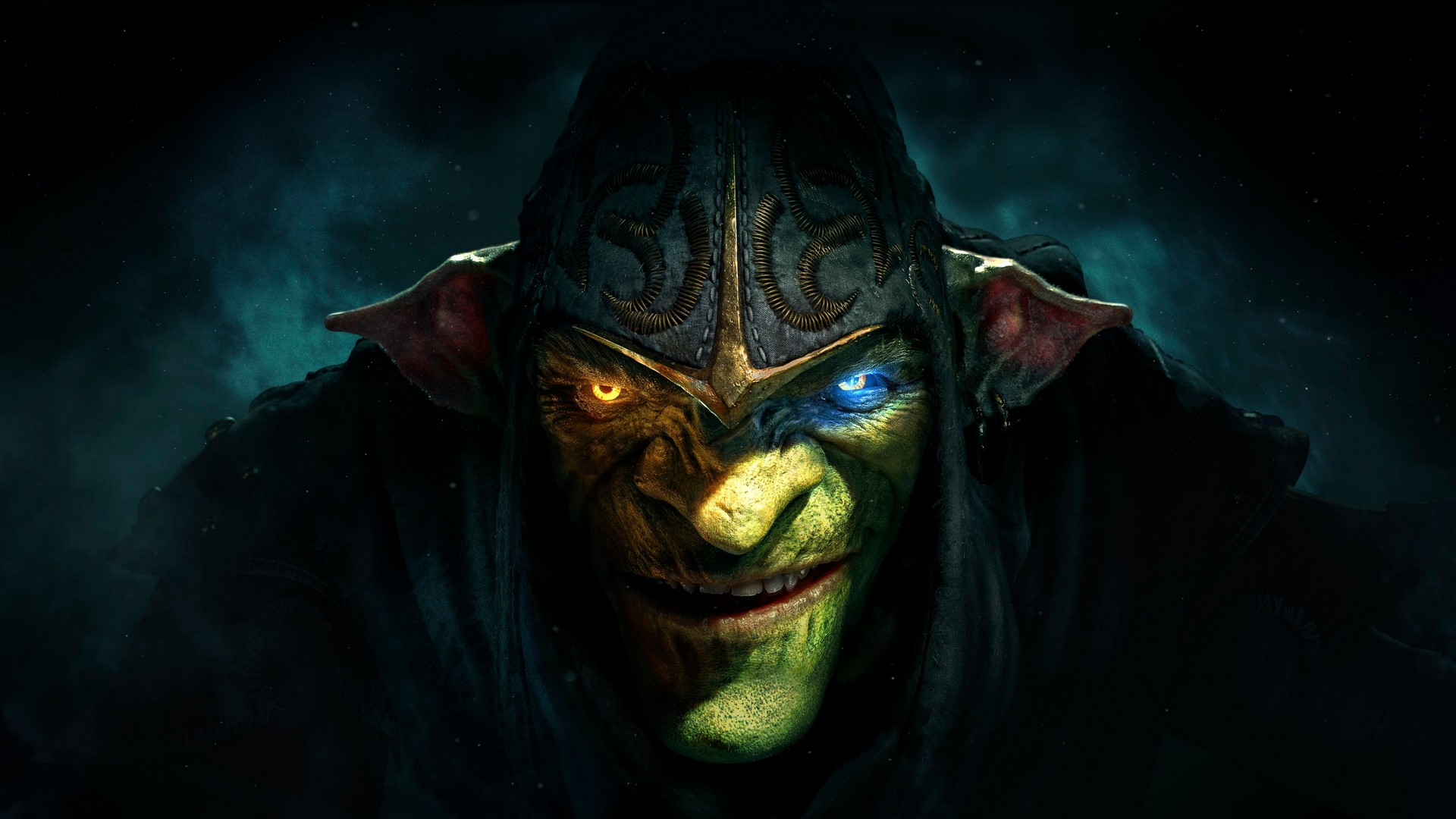So, That Happened - Nov. 16

Pause and reflect
It was a rough week to not be a black plastic parallelogram. Though PS4 and Xbox One claimed countless headlines across enthusiast and generalist press, there's much more going on in the world of games and the folks who write about them: the death of social gaming, the unsustainable injustice of crunch, unlicensed mascot platformers. A frightening amount of stuff, really.
With that in mind, I present the inaugural edition of So, That Happened, a weekly curation of Stuff You May Find Interesting culled from our peers across the World Wide Web. You may not agree with everything you find past this page (or even on this page, if you're particularly argumentative) but I hope you'll find it all worth your consideration.
Photo by Phil Roedor

With the luster of social games gone, what now?
"What's worse, [Facebook game developers] were supposedly making them for this cohort that existed as a cartoon--the middle aged mom sitting at home, bored with her life," he adds. "Given this mostly male, mostly disinterested group of people cynically making games for this other group that existed primarily as a stereotype, it's not hard to see how the bubble burst."
Calling social games a bloated corpse would be a gross mischaracterization; millions of people still log in to drain their energy bars on animal husbandry and candy crushing every day. But if it were dead--maybe even just gangrenous--then Leigh Alexander's latest Gamasutra article pulling together interviews with current and former developers is its autopsy.
Cause of death? The same aspects that sparked the gold rush. The analytics and sharing mechanisms built into the platform became so dominant, so essential to maintain the mythical "bored mom's" interest and/or credit card information that new ideas meant to appeal to new audiences found little footing. What social games need to thrive once more, it seems, is a clean amputation from the festering chimera that is Facebook and Zynga.

You Can Sleep Here All Night: Video Games and Labor
"Management is only too happy to keep this revolving door of for-profit graduates and dreamers going. It depresses wages, giving breathing room for the beancounters who are, almost without exception, allowing management compensation, marketing costs, and non-worker compensation costs generally to skyrocket. It forces employees to give in to management demands because there is always, no matter what position you hold, someone who is enough of a dreamer, with enough passion, to do it cheaper."
At least one thing you and I have in common is a passion for video games. Like Holmes, I arrived at this conclusion by deduction: you are on a website called GamesRadar, halfway through an article about video game writing. Developers are passionate about games, too, but according to this Jacobin Piece by Ian Williams, that's why big studios can exploit them.
Whether employees work weeks of overtime at will or at the behest of management, it's the same problem: folks who can't sacrifice health, family, and social lives to meet timetables handed down from on high are not long for the industry. Passion doesn't keep the lights on or put you in a seat at little Skyler's piano recital. Whether you'd die for your union or would rather go hot tubbing with Ayn Rand and Andrew Ryan in a Jacuzzi filled with the salty tears of the proletariat, that means good talent is needlessly washing out of the industry.
Photo by Dave Stokes

Crunch Time: Working Overtime to Kill You
"You dont have to squint very hard to see a cautionary tale here: an ironic criticism of the exploitation of a workers goodwill, their enthusiasm for their work. That version of Magarac could be useful to some workers in the games industry right now. While the immediate threat of long-term bodily harm has been taken out of the equation (at least for the majority of game developers stories of crunch time abound."
Here we are with labor issues again. But instead of assembling a call to action from the testimony of beleaguered video game professionals, Brian Taylor adds perspective to the issues with the legend of Joe Magarac in his new Paste column. (If your knowledge of industrial Americana is rusty, Magarac is the Paul Bunyan of steelworking: a mythical figure who could take a handful of molten metal and squeeze out I-beams from between his fingers.)
Magarac was so passionate about his industry that he ended his life by sealing himself in a vat of liquid steel. He died to infuse his strength and passion into his company's product. While I don't believe any studios have the means to virtualize employees' bodies and souls, Tron-like, and distill their mortal essence into the code of upcoming projects, they sure can suck up the rest of their lives.
Photo by Joseph A

End the Video Supremacy of Games
"Frankly, I dont think there is a lot new to talk about with video games because of the rut its in. Mainstream video games is more in a state of fixing and reinventing than it is innovating. This is clear when you go to a festival like IndieCade and see the different kinds of engagement non-digital games are doing. They blow many its hard for games to do x arguments right out of the water. Things like rules, goals, systems that seem like a given but are done away with or morphed beyond recognition elsewhere."
Depending on your definition, the next generation of consoles may have begun today. But the world of play is not constrained to the slim plastic boxes Nintendo, Sony, and Microsoft produce in roughly the same time it takes the U.S. to elect and tire of a commander-in-chief. This myopic definition of games as technological marvels produced on TV screens does them all, digital and analog alike, a disservice, Mattie Brice argues on Alternate Ending.
It's easy to forget the value of games that can't flash impressively and record high scores, so take a moment to appreciate all the forms of play before you tear into your PS4 or Xbox One. Tag your friend--not in a Facebook post--or invent a bawdy variant of Mafia. We should never let our love for video games reduce our enthusiasm for other forms of play and what they can accomplish.
Photo by Max Turnauckus

Winning formulas: The story of PlayStation 4
"Sony's reliance on Cerny--not a console engineer by trade, nor based in Japan, nor even a PlayStation employee--for such a critical task was described as 'beyond unusual' and even 'crazy' by the man himself. Yet for the PlayStation business, which has spent nearly a decade recovering from the bad thinking and tunnel-vision during the creation of PS3, it has proven to be an immensely astute decision."
Mark Cerny is a sly devil. There are many lessons to learn about the creation of PS4 in the context of its predecessors in this CVG feature by Rob Crossley--full disclosure, I also work at CVG--but that's the big one. Cerny, a contractor, kept his involvement with Sony's next-gen system quiet for five years despite his role in shaping it, driving its renewed purpose as a developer-friendly console.
While PS4 is in every way a direct response to that which lost its predecessor sweet, sweet market share to Xbox 360, PS3 was a victory lap after the stellar success of PS2. It showed: the arcane power of PS3's Cell processor was lost on most of the titles it powered. The details of how and why PS4 pulled a 180 of its own are, if you ask me, more interesting than its launch lineup.
Photo by GDC Europe

Oculus Rift creator: Xbox One and PS4 are far too limited for what we're planning
"Consoles are too limited for what we want to do," he says. "We're trying to make the best virtual reality device in the world and we want to continue to innovate and upgrade every year--continue making progress internally--and whenever we make big jumps we want to push that to the public."
The 21-year-old creator of Oculus Rift is not content making people feel old. No, Palmer Luckey has already succeeded at making the next generation of consoles feel old in this interview with TechRadar, in which he explains why he's not very interested in either PS4 or Xbox One: neither system's new direction is half as exciting as the unmined possibilities of virtual reality (to be fair, he would say that).
But it's not just pie-in-the-sky potential. After more than a decade of post-Virtual-Boy-stasis, advancements in virtual reality are exploding once more, led largely by the Rift. These advancements need ever better tech to drive them, meaning that both of this month's shiny new systems are already probably not up to snuff, Luckey observes. In five years, after several revisions to the Rift's upcoming consumer model, pairing it up with consoles would be like plugging a telegraph into a cell tower.

Frog Fractions
Just about the only thing Frog Fractions won't do is teach you about fractions. To explain any further the appeal of this seemingly innocuous browser edutainment game would be to put its most precious asset in jeopardy, so just trust me, here: clear out an hour or two and play it all the way through.

Candy Box 2
Candy Box 2 starts with some candy. Then you get more. Then you can start using that candy to make the rest of the game show up. From simple beginnings come an incredibly diverse and complex array of activities that astound without overwhelming. Oh, and it's all made out of ASCII art.

Bubsy 3D
Completing this week's trifecta of Games That Are Not What They Appear To Be is Bubsy 3D. No, not that Bubsy 3D. This Bubsy 3D ostensibly celebrates the world's least-celebrated platform hero's 18th birthday by taking him through a retrospective of artist James Turrell's works of light projection. But it's actually way weirder than that.

Call for submissions
That's it for this week, but we all know there's much, much more out there. Read an interesting theory about the true meaning of GTA's hidden packages? Stumble on a blog post that presents a compelling argument for why games will bring about the apocalypse? Toss a link in the comments and you may just see it here next week--with gracious attribution, of course. Until then, keep browsing.

I got a BA in journalism from Central Michigan University - though the best education I received there was from CM Life, its student-run newspaper. Long before that, I started pursuing my degree in video games by bugging my older brother to let me play Zelda on the Super Nintendo. I've previously been a news intern for GameSpot, a news writer for CVG, and was formerly a staff writer at GamesRadar+.
Weekly digests, tales from the communities you love, and more
You are now subscribed
Your newsletter sign-up was successful
Want to add more newsletters?

Every Friday
GamesRadar+
Your weekly update on everything you could ever want to know about the games you already love, games we know you're going to love in the near future, and tales from the communities that surround them.

Every Thursday
GTA 6 O'clock
Our special GTA 6 newsletter, with breaking news, insider info, and rumor analysis from the award-winning GTA 6 O'clock experts.

Every Friday
Knowledge
From the creators of Edge: A weekly videogame industry newsletter with analysis from expert writers, guidance from professionals, and insight into what's on the horizon.

Every Thursday
The Setup
Hardware nerds unite, sign up to our free tech newsletter for a weekly digest of the hottest new tech, the latest gadgets on the test bench, and much more.

Every Wednesday
Switch 2 Spotlight
Sign up to our new Switch 2 newsletter, where we bring you the latest talking points on Nintendo's new console each week, bring you up to date on the news, and recommend what games to play.

Every Saturday
The Watchlist
Subscribe for a weekly digest of the movie and TV news that matters, direct to your inbox. From first-look trailers, interviews, reviews and explainers, we've got you covered.

Once a month
SFX
Get sneak previews, exclusive competitions and details of special events each month!


